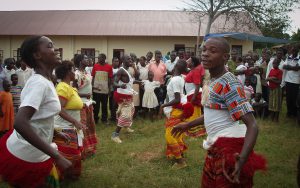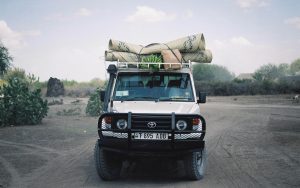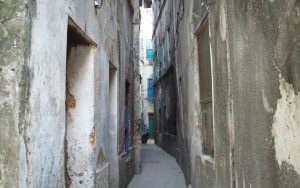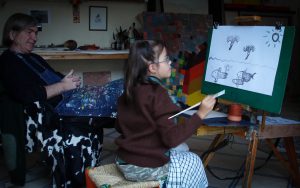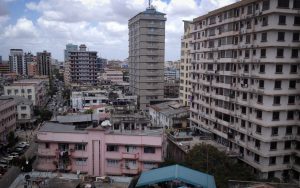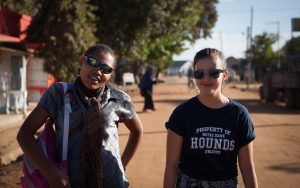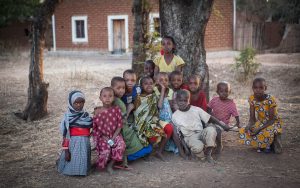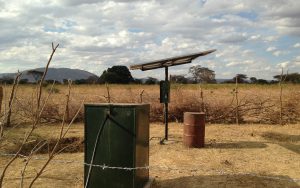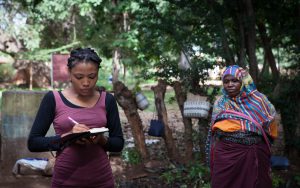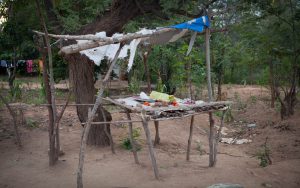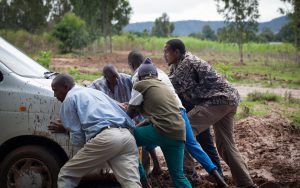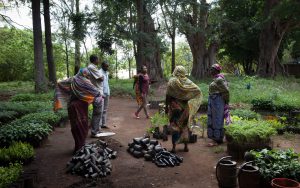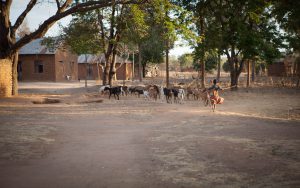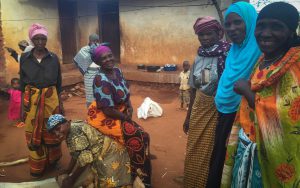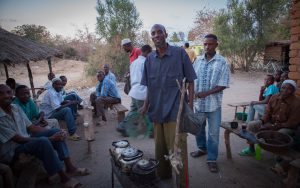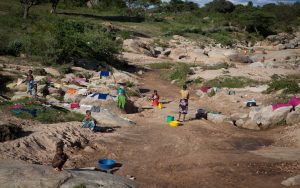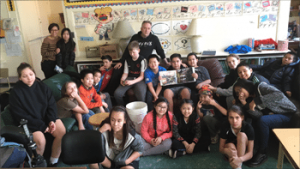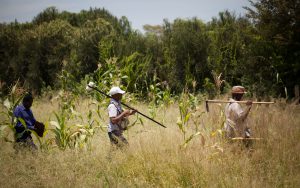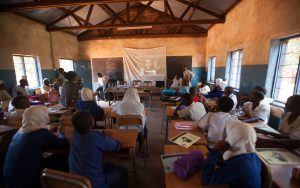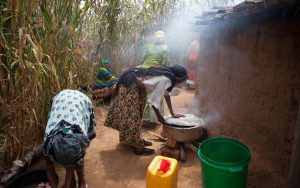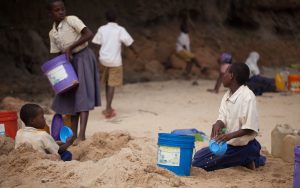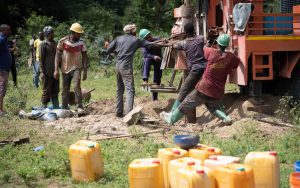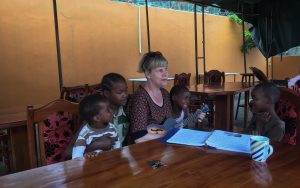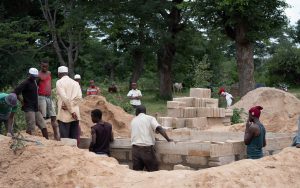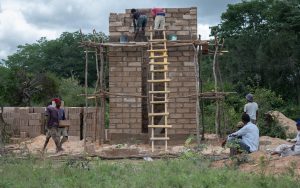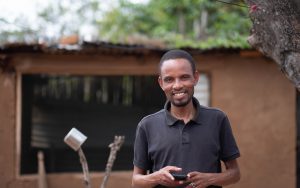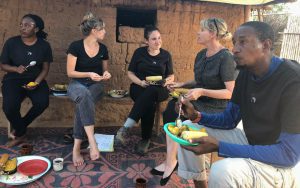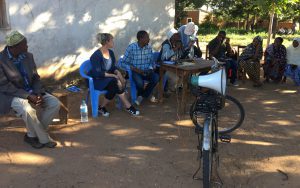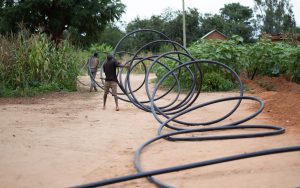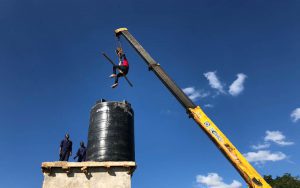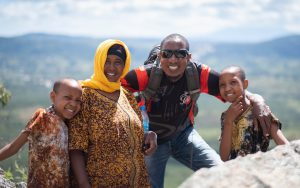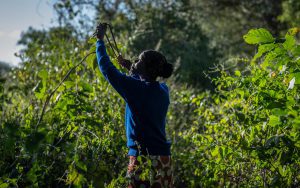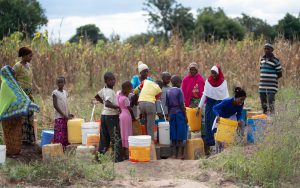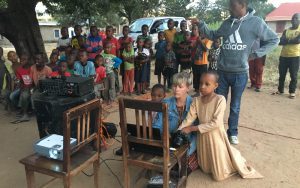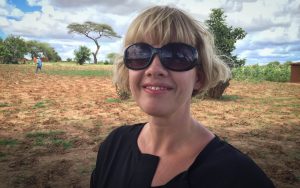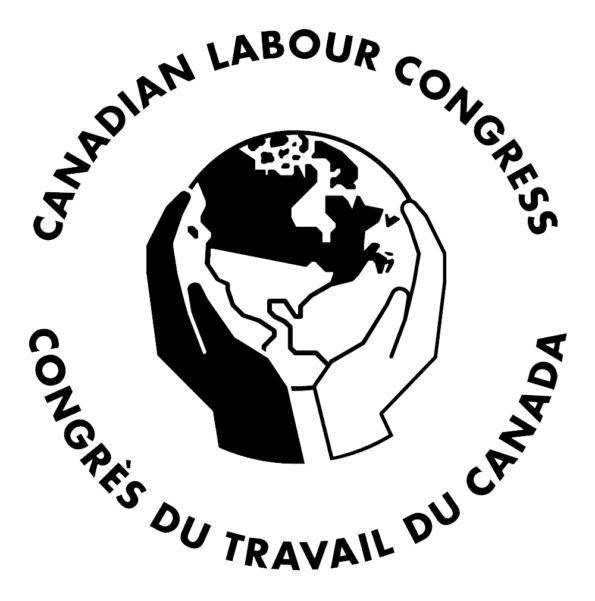I debated whether I even wanted to share this part of this story, but I will. At one point, I came close to leaving before the project was even done, and while sticking to only the good parts would make it sound more like a fairy tale, this “bad part” showed how resilient and strong we can all be, or maybe it was just plain old persistence.
A few days before Bar and the Innovation: Africa team visited the project site, Moshi had noticed some additional trenches (more than we had originally planned to dig for the seven distribution points) going into people’s houses. This basically meant that water would be funneled into individual homes. This might’ve been possible, but only after the water had flowed for a year and we had statistics on how much water was available. Once we got to that point, we would need to address it with the water committee to be voted on by the village. And to reiterate, this wasn’t going to even be considered for at least another year, so it didn’t make sense to us why and how this was happening.
After speaking to a few people, we started to suspect that the engineer was selling extra water lines to people who were willing to pay for them, which was putting the entire project, in addition to the well itself, in great jeopardy. We had our suspicions that he had run out of money for the project and was trying to fund the rest of it without anyone knowing.
One day, Bar arrived from Israel to visit the project site with her team, and we walked to each of the six houses (there were probably many more that were hidden) with additional trenches and pipes ready to be hooked up. Naturally, the engineer would have been there for this meeting, but he was nowhere to be found all day. His absence made no logical sense since this was an important opportunity for him to show how the project was developing. The entire situation reeked of suspicion.
Since this was ultimately also a village issue, and since those were very formal, we asked the village chief to note down all of the names of people who had extra trenches and if they had paid money to anyone. Unofficially, the villagers had said to Moshi that the engineer had charged them. They thought the trenches were sanctioned by the project since it was the engineer himself selling them, but later, when the village chief came around to get their official statements, no one would say his name. To this day, I still can’t figure out why the engineer thought this was a good idea. He had to know he was putting the well in jeopardy, and I can’t imagine he made much money, and nobody was telling the truth.
That evening, I had dinner with Bar and the IA team, and during this time, the engineer finally returned one of Bar’s many calls and came to meet us. She asked him what was going on, and he denied everything and blamed it on the corruption of the people in the village.
She took his word over ours and stopped all work on the water project until we could address the problem with the extra trenches, which were now being blamed entirely on the people of Iyoli and their stupidity and corruption.
Word spread throughout the village that the water project had stopped, and the next day, a village meeting was called, and I made sure with Bar that the engineer would be required to attend (the IA team had already left, so Moshi and I were left to figure this all out on our own). Our strategy was to unify the village so that we could all move forward with a fresh start, energized and without anger, to help the engineer complete his job. Every single person in the village knew the truth, and I was worried that everything would turn to chaos and the villagers would beat up the engineer (yes, that happens) since he lied to everyone. Basically, we were asking the people to forgive the engineer and each other and move on.
It took a great deal of time to explain to the villagers why any extra pipes would be a mistake. The well could only provide so much water, and the pump had been professionally calibrated for seven distribution points, and to try to send the water to any more than that would put too much pressure on the pump itself, and it would eventually wear itself out and break down.
We explained to them that this was a mistake that could never happen again. It put the sustainability of this well in jeopardy, and by the end of the meeting, the people in the village agreed. I stood up and asked for peace—even if someone had done wrong—and then Moshi closed the meeting by allowing questions. The only rule was that no one was allowed to make accusations (that was behind us), and no one did.
We left early so that the engineer could deal with paying back the villagers. We we just pretended that we did not know—even though everyone knew that we knew full well what happened.
Despite all this, the engineer had hired a successful company that drilled down 120m and found water. He actually started out great, and the tower was going up fast at first, but when he ran out of money, as we suspected, he scrambled to find enough to finish the project without Innovation: Africa knowing. The organization was planning to use this guy for other projects, so they didn’t really want to see the truth; they were invested in his “company.” However, in the end, we all just worked around this craziness and just kept going.
After one of the most exhausting days during all of my trips to Tanzania, I returned to my hotel and was greeted by Baraka, Miriam, Shadia, as well as a group of neighbourhood kids. They had with them letters and pictures for me to hang up in my room. I think that maybe it’s the children who know how to handle things the best—with messages of love and pretty pictures. Their small act of kindness quickly outweighed the corruption of one man.




